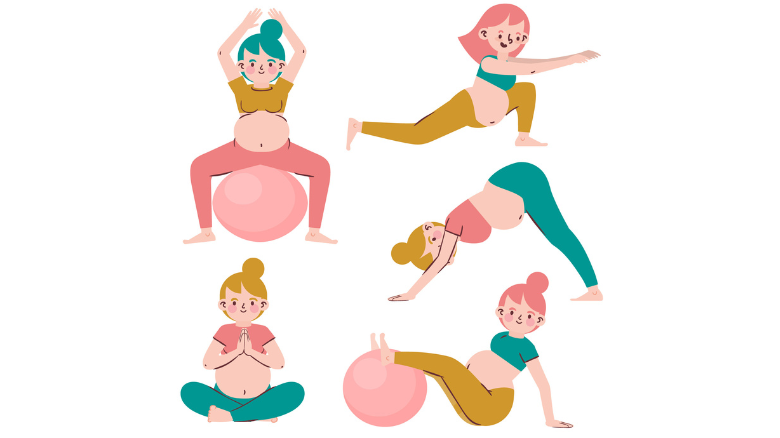
Embarking on the journey of pregnancy is both exhilarating and daunting. As your body transforms to nurture life, maintaining a healthy lifestyle becomes paramount. Exercise during pregnancy can be a fantastic way to support your well-being, both physically and mentally. However, determining which exercises are safe can often feel like navigating a maze. Fear not, for we will unravel the secrets to safe exercises tailored for each trimester, helping you stay active and healthy throughout this magical phase.
Are you curious about how to exercise safely during pregnancy without compromising your health or your baby's?
Key Takeaways
- Discover safe and effective exercises specific to each trimester of pregnancy
- Understand the benefits of staying active during pregnancy for both mother and baby
- Learn how to modify exercises as your pregnancy progresses
- Get tips on listening to your body and recognising warning signs
- Explore the importance of consulting healthcare professionals before starting an exercise regimen
Safe Exercises for Each Trimester
Exercise during pregnancy doesn't just keep you fit; it also prepares your body for childbirth and aids in postpartum recovery. However, the types of exercises you engage in should evolve as your pregnancy progresses. Each trimester brings its own set of physical changes and challenges, which means your exercise routine should adapt accordingly. Let's explore the best exercise practices for each trimester.
First Trimester: Building a Foundation
The first trimester is a time of significant change as your body begins to adapt to pregnancy. While you might feel fatigued or experience nausea, staying active can help alleviate some of these symptoms. During these early months, it's vital to focus on building a strong foundation that will support you throughout your pregnancy.
Incorporate low-impact cardiovascular exercises, such as walking or swimming, into your routine. These activities are gentle on your joints while providing a good cardiovascular workout. Aim for 150 minutes of moderate aerobic activity per week, as recommended by health experts.
Strength training is another excellent option during the first trimester. Focus on exercises that strengthen your core, back, and pelvic floor muscles. Simple moves like pelvic tilts, Kegels, and modified planks can help build strength and stability. Always prioritise proper form and breathing to maximise benefits and prevent injury.
Flexibility exercises, such as prenatal yoga or Pilates, can also be beneficial. They promote relaxation, improve posture, and enhance flexibility, all of which are advantageous during pregnancy. Moreover, these practices often incorporate breathing techniques that can be useful during labour.
Second Trimester: Embracing Change
As you enter the second trimester, many women find a renewed burst of energy. This is often considered the "golden period" of pregnancy, where nausea subsides and you feel relatively comfortable. It's an excellent time to ramp up your exercise routine while still being mindful of your body's limits.
Continue with your cardiovascular activities, but consider incorporating some variety. Prenatal dance classes or water aerobics can be both fun and effective. These activities not only boost your mood but also improve your endurance—a valuable asset for labour.
Strength training should still focus on the core and back, but you can now add exercises targeting the upper and lower body. Light weights or resistance bands can be integrated into your routine. Squats, lunges, and bicep curls are excellent choices, providing they are done with proper alignment and support.
Balance becomes increasingly important during the second trimester as your centre of gravity shifts. Incorporate exercises that challenge your balance, such as standing yoga poses or using a stability ball. This will help maintain coordination and prevent falls.
Third Trimester: Preparing for Labour
The third trimester is all about preparing your body for the impending arrival of your baby. Your belly is growing, and you might feel more fatigued, making it crucial to listen to your body's signals. The focus should be on maintaining fitness without overexerting yourself.
Walking remains an excellent cardiovascular exercise during this stage. It's low-impact, can be done almost anywhere, and is easy to modify as needed. If walking becomes uncomfortable, consider water-based exercises, which provide buoyancy and reduce joint strain.
Strength exercises should centre around maintaining muscle tone without straining your body. Focus on gentle resistance exercises and avoid those that require you to lie flat on your back. Prenatal yoga can be particularly beneficial in the third trimester, as it promotes relaxation and flexibility, aiding in labour preparation.
Don't forget the importance of pelvic floor exercises during this time. They strengthen the muscles that support your bladder, bowels, and uterus, helping to prevent incontinence and support a smoother delivery.
Listening to Your Body and Consulting Professionals
Throughout your pregnancy, it's crucial to listen to your body's signals. If you experience any pain, dizziness, or shortness of breath while exercising, stop immediately and consult your healthcare provider. Always stay hydrated, wear comfortable clothing, and exercise in a safe environment.
Before beginning any exercise regimen, especially during pregnancy, consulting with your healthcare provider is essential. They can offer tailored advice based on your medical history and current health status. Remember, every pregnancy is unique, so what works for one person may not be suitable for another.
Conclusion
Staying active during pregnancy can be a rewarding experience that benefits both you and your baby. By choosing safe exercises tailored to each trimester, you can enjoy a healthier, more comfortable pregnancy. So, are you ready to embrace the changes and stay active for your little one's journey into the world? Whether you're walking through the park or stretching in a yoga class, remember that every step you take is a step towards a healthier you.
Harsha Hospitals provides trimester-wise safe exercise programs designed by physiotherapists and gynecologists. From light stretches to prenatal yoga, these exercises promote strength, reduce discomfort, and prepare mothers for safe labor, ensuring overall health during pregnancy.


